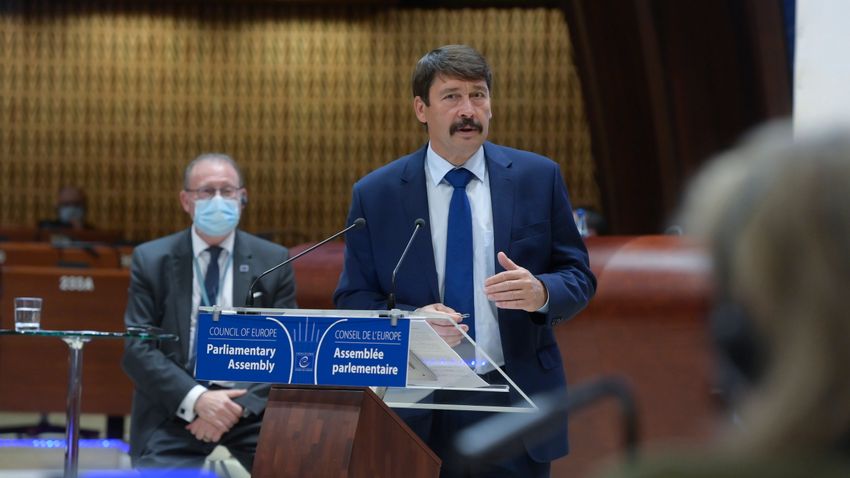Hungary, the first EU member state to ratify the Paris Climate Agreement, has taken steps to make it a climate-neutral country by 2050, said President János Áder at the high-hevel Panel on the Environment of the Parliamentary Assembly of the Council of Europe (PACE) in Strasbourg on Wednesday.
Áder spoke in the debate of the General Assembly on the occasion that Hungary is holding the six-month presidency of the Committee of Ministers of the Council of Europe, which began on May 21.
In the context of the Paris Climate Agreement adopted in December 2015, Áder warned: “After six years, we are further away from the Paris goals than we were at the time of its adoption. We must implement what we have agreed.”
He stated that words, deeds, and principles are far from being in tandem with reality.
“Countries that call themselves climate champions, including quite a few European states, have not only not reduced, but in fact have increased their emissions,” he underlined.
Citing a UN report released in September, he said that if the current trend continues, emissions will not fall by 2030, but will be about 60 percent higher than 1990 levels.
“Can we preserve our created world as we know it or destroy it?” Áder asked.
“Hungary has taken measures, as set out in the Paris Climate Agreement, to reduce emissions by 32 percent compared to 1990 and to phase out the use of coal for energy purposes in the short term,” he added. “It has been decided that Hungary will double its solar power plant capacity every year, and from 2030 onwards will only market electric buses to serve public transport.”
He also spoke about the need to build emergency reservoirs in Hungary to offset the more frequent water shortages and to solve the problem of desertification in the central part of the country. He emphasized that the rivers passing through Hungary leave the country in a cleaner state than when they arrived there.
Áder also highlighted that about 80 percent of the impact of climate change is water-related. There is a consensus that the so-called hydrological cycle will be upset, leading to extreme weather, he said. Local and regional water crises are becoming a global crisis, causing supply and operational problems, he added.






